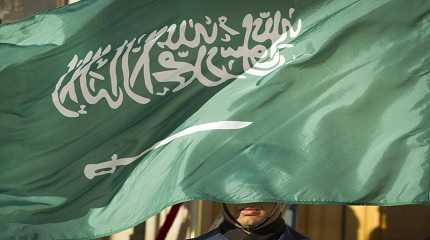
KUALA LUMPUR, Sept 28 (NNN-Bernama) — Since the launching of Vision 2030 in 2016, the Saudi government has achieved many successes in the implementation of several basic reforms which in turn contributed to many other important achievements, said Saudi Arabia’s ambassador to Malaysia Dr Mahmoud Hussein Saeed Qattan.
These achievements included strengthening the status and role of the kingdomat the Islamic, regional and international levels and Saudi’s contributions and its leading role in the stability of global energy markets and the global economy.
“Besides that, the participation of Saudi youth in the kingdom’s Vision 2030 programmes had also been enhanced, as well as promoting women’s empowerment by expanding the sectors in which Saudi women work until they reachleadership positions,” he told Bernama in conjunction with the kingdom’s 92th National Day on Sept 23.
On the issue of diversifying the oil and gas-dependent Saudi economy, Qattan said these are two main sources of income for the Saudi economy, and the kingdom had benefitted from it to finance various development plans, but they are vulnerable to economic fluctuations, which may negatively affect development projects.
He said, therefore, under the kingdom’s Vision 2030, the economic aspect focuses on investing and developing the capacities and capabilities of the Saudi people to diversify the sources of income and the economy.
“Vision 2030 programmes have achieved positive results that have contributed to diversifying the sources of the Saudi economy and reducing dependence on oil and gas resources,” he further said.
Saudi Arabia is also working to take advantage of important investment opportunities in different countries of the world.
“There are also resources available in Saudi Arabia that were not well invested, such as tourism, where Saudi Arabia has great tourist and cultural diversity, so there were large tourism projects such as Neom, the Red Sea, Qiddiya and others,” he said.
Vision 2030 also includes important industrial initiatives and projects, renewable energy projects as well as focus on the mining, agriculture and fisheries sectors.
Replying to another question, Qattan said the reforms implemented by Saudi in various fields and the achievements made through the implementation of the programmes of Vision 2030 enabled the country to withstand crises, mitigate the effects and overcome them such as the COVID-19 pandemic.
He pointed out that the COVID-19 pandemic period had been overcome without negative impacts on the implementation of Vision 2030 programmes, adding that the programmes implemented by the government previously has contributed to alleviating the effects of the current global food security crisis.
Speaking on the achievements since the founding of the kingdom in 1932, the ambassador said the achievements are many, but the most important achievement of the Saudi leadership was moulding the Saudi people through education and development while adhering to the teachings of the true Islamic religion based on centrism, moderation, and tolerance.
Vision 2030 was launched in April 2016 with the roadmap drawn up by Crown Prince Mohammed bin Salman bin Abdulaziz Al-Saud. The Vision stems from the strategic location, investment power and placement of the kingdom at the centre of Arab and Islamic worlds.
It represents a comprehensive national development plan that aims to transform the kingdom into a world-leading model by empowering its citizens to unleash their energies and capabilities and invest strengths to create a diversified and prosperous economy and build a vibrant society that enjoys a healthy life.
It also serves as a strategic framework to reduce Saudi Arabia’s dependence on oil, diversify its economy, and develop public service sectors such as health, education, infrastructure, recreation and tourism.




